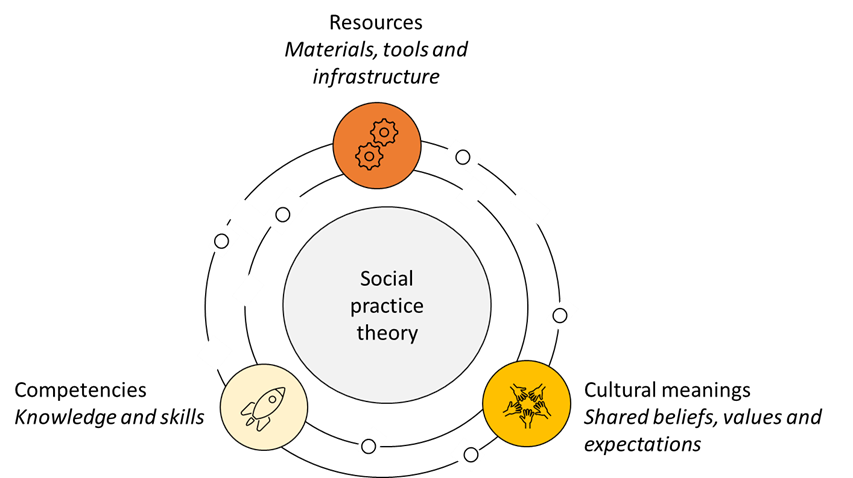Empowering sustainable consumer behaviours

Last year, COP26 – the international climate conference – was convened in Glasgow. While the outcomes of the conference are relatively high level, what is clear is the need for action now to abate the very worst impacts of climate change. The agreed aim is to reduce global average temperature rises to 1.5°C by 2030.
Consequently, governments around the world have made commitments to significantly reduce greenhouse gases. To achieve this goal, consumers will need to play their part. To put this in context, all human activity impacts on the environment to some extent, no matter how prosaic, whether that be simply commuting to work, washing clothes or consuming food.
Against the above backdrop, governments, local councils and businesses are seeking to empower individuals to adopt environmentally responsible behaviour. For example, within the auspices of environment, social and governance (ESG), businesses are increasingly looking at the impact of their operations and how to create sustainable customer behaviours.
However, the challenge of ‘behaviour change’ cannot be underestimated. As market researchers, we can attest to the complex and often confounding nature of human behaviour, and sustainable behaviour is no exception. Luckily, there is a significant body of research into sustainable behaviour change.
A case in point is Social Practice Theory, an established sociological theory that has historically been used to look at the impact of technology on culture and social practices. More recently, the theory has had a renaissance as a practical framework for enabling sustainable behaviours.
The central tenant of the theory is that individuals are social agents who carry out actions based on social practices; in turn, the social world is negotiated and given meaning through practice by social actors. In common parlance, a social practice relates to everyday activities that are typically routine or habitual in some sense. Going to work, preparing a meal, visiting the gym are all examples of habitual behaviour, where the emphasis is on a single action.
The theory
In Social Practice Theory, a practice or practices are composed of elements. Although there is much debate about the exact number of elements in the academic community, the consensus is three, as illustrated below.

Take the introduction of the London cycle hire scheme back in 2010, which made cycling more accessible. This change in the resources element resulted in an increase in short cycle journeys in the capital. Other resource changes included the extension of the London Cycle Network, improvements in cycle storage and the introduction of speed limits to slow down motorists at cycle-danger hotspots.
Regarding competencies, awareness campaigns of ‘safe cycling’ helped to improve cycling ability. Finally, investment in cycle infrastructure and skills helped to bring about a cultural shift. Cycling in London is no longer seen as the sole occupation of Lycra-clad speedsters, but a more inclusive activity for other commuters and leisure cyclists, where the conferred health benefits, both physical and mental, are the key motivators. A social practice is social by nature, whereby ‘cycle converts’ continue to practice and promote cycling in London, thus encouraging others to subscribe to the social practice.
While not dismissing the importance of individual agency, social practice theorists argue that rather than treating the social practice as a constant and looking for reasons why individuals perform social practices, the emphasis should be on what social practices ask of the individual and how social practices attract individuals who are willing and able to perform a social practice. Naturally, changes in any/all the elements will change the nature of a social practice. Ergo, to influence behaviour, the elements of specific practices will need to change.
The application
Research into environmental behaviour is currently in a period of exponential growth. Drawing upon established theory will ensure that market research professionals are best placed to meet the demand.
Inviting researchers to consider social practice theory from the onset will help foster more expansive thinking, encourage researchers to develop more dynamic and challenging hypotheses and ultimately result in more insightful outcomes. With three core elements – resources, competencies and cultural meaning – social practice theory is relatively straightforward and accessible to the uninitiated.
The theory helps researchers identify desired sustainable behaviour change, detail the preconditions for sustainable behaviour change and ensures it can be measured over time, and finally, create an organic model that can pivot as social practice elements and behaviour evolve. The social practice theory provides researchers with a powerful framework in which to model sustainable behaviours in different settings.
Julian Adams is head of research at Motif and a guest lecturer at Kingston University Business School.

We hope you enjoyed this article.
Research Live is published by MRS.
The Market Research Society (MRS) exists to promote and protect the research sector, showcasing how research delivers impact for businesses and government.
Members of MRS enjoy many benefits including tailoured policy guidance, discounts on training and conferences, and access to member-only content.
For example, there's an archive of winning case studies from over a decade of MRS Awards.
Find out more about the benefits of joining MRS here.













0 Comments